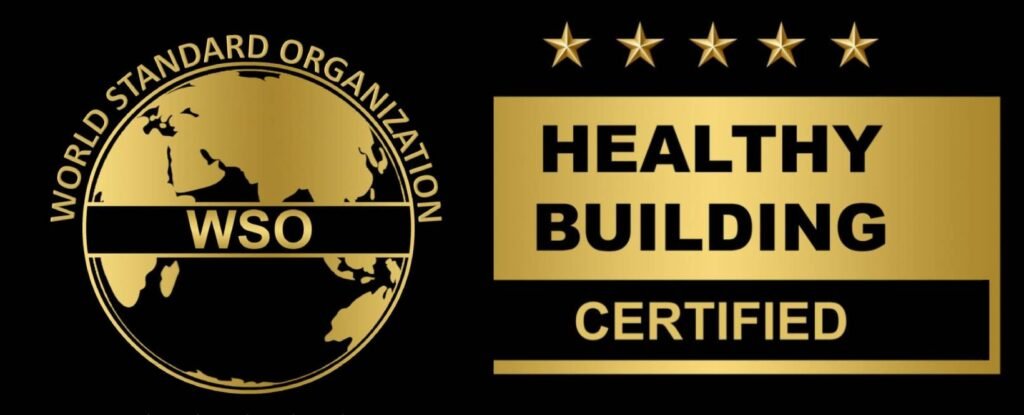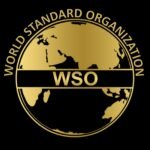Healthy Building Certifications
At WSO, we’re dedicated to improving the health and well-being of communities by ensuring the built environment supports and enhances human health. We are a leading, independent, and internationally recognized Health Building Certification Accreditation Body, committed to setting the highest standards for healthy building practices.
What We Do : We provide comprehensive accreditation services for health building certification programs. This includes :- Developing and maintaining rigorous standards: We establish science-based criteria for healthy building design, construction, and operation, covering key areas such as indoor air quality, water quality, thermal comfort, lighting, acoustics, and materials.
- Accrediting certification programs: We evaluate and accredit organizations that offer health building certification programs, ensuring they meet our stringent requirements for competence, impartiality, and transparency. This gives credibility and trust to the certifications they offer.
- Promoting best practices: We actively promote the adoption of healthy building practices through education, outreach, and collaboration with industry stakeholders. We share knowledge and resources to empower the building industry to create healthier spaces.
- Ensuring quality and consistency: We maintain the highest standards of quality and consistency in our accreditation processes, ensuring that certified buildings meet the established health criteria.
Type of Certifications:
Spaces Level: Residency, Restaurant OfficesBuilding Level: Core & Shell, Interiors, Operation & Maintenance, Whole Building
Others: Educational Facilities, & Healthcare Facilities
Healthy building standards are a set of guidelines and best practices that aim to create indoor environments that support the health and well-being of building occupants.
These standards address various aspects of building design, construction, and operation to minimize potential health hazards and promote a comfortable and productive environment.

- Water Quality: Ensuring access to clean and safe drinking water is essential. Standards may address water filtration, testing, and prevention of waterborne diseases.
- Lighting: Proper lighting design is crucial for visual comfort, productivity, and circadian rhythm regulation. Standards may specify requirements for daylighting, artificial light levels, and color temperature.
- Thermal Comfort: Maintaining a comfortable temperature and humidity range is important for occupant well-being. Standards often address heating, ventilation, and air conditioning (HVAC) systems, as well as building insulation.
- Acoustic Comfort: Noise control is important to minimize distractions and promote concentration. Standards may specify limits for background noise levels and reverberation time.
- Materials: The selection of building materials plays a significant role in indoor environmental quality. Standards may encourage the use of low-VOC materials, recycled content, and materials with minimal environmental impact.
- Ergonomics: Designing workspaces that support proper posture and movement can prevent musculoskeletal issues. Standards may address furniture selection, workstation layout, and access to natural light and views.
- Mental Well-being: Creating spaces that promote relaxation, reduce stress, and foster social interaction is increasingly recognized as important. Standards may encourage access to green spaces, biophilic design, and features that support mindfulness.
Benefits of Healthy Buildings:
Improved Occupant Health: Reduced exposure to pollutants and hazards can lead to fewer health issues and sick days.
Increased Productivity: A comfortable and healthy environment can boost concentration, creativity, and overall productivity.
Enhanced Occupant Satisfaction: Occupants are more likely to be satisfied with their workspace when it prioritizes their well-being.
Reduced Energy Consumption: Many healthy building strategies, such as optimizing lighting and HVAC systems, can also lead to energy savings.
Increased Property Value: Buildings with healthy building certifications may command higher rents or sale prices.
Why Choose Us?
- Global Recognition: We are recognized internationally for our expertise and commitment to healthy building practices.
- Rigorous Standards: Our accreditation process is based on the latest scientific research and best practices, ensuring the highest standards for health building certification.
- Impartial and Transparent: We operate with complete impartiality and transparency, ensuring the credibility of our accreditation services.
- Dedicated Team: Our team of experts is dedicated to advancing healthy building practices and providing exceptional service to our clients.

Get In Touch
Let’s work together to plan and implement your strategy.


